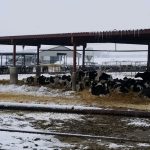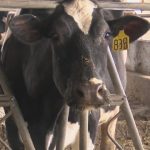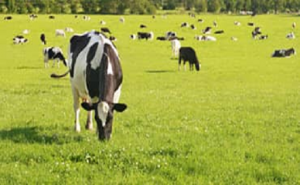
Billions of Dollars in Trade Could Be Lost for U.S. Dairy
A new report by Meros Consulting, a Tokyo-based company, for the U.S. Dairy Export Council (USDEC), shows that trade deals negotiated by other countries with Japan are hurting U.S. dairy trade access.
Japan is the fourth largest dairy export destination for U.S. dairy products. The new trade agreements with Australia, New Zealand and the European Union could deprive the U.S. of $5.4 billion in sales over the next 21 years as these agreements fully mature, estimates Meros.
Whole Milk Legislation Proposed to Get Milk Back in School
A new piece of legislation has been proposed that aims to get whole milk back into school cafeterias.
The Whole Milk for Healthy Kids Act of 2019 (H.R. 832) was introduced by Reps. Glenn Thompson (R-PA) and Collin Peterson (D-MN), chairman of the House Agriculture Committee. The bill is getting high praise from several dairy groups, too.
Farm Aid Responds to Criticism
During a recently televised commentary, Clinton Griffiths, AgDay anchor and executive producer, voiced his concerns with the Farm Aid programs use of funds.
In his Farm Sense segment, Griffiths shared that Farm Aid has been using funding from charity concerts to lobby against various agriculture programs. These include spreading information about GMO food, global trade and industrial livestock operations that the organization has viewed as dangerous.
“Farms are facing tough times, but I don’t think we should be picking and choosing who to help. I support farmers no matter the crop, no matter the size because it takes all of us to feed a hungry world. Do it however you like. Stay in business and stay true to your passions, but I take offense to raising money off of all farmers when the goal is to put others out of business,” Griffiths says.
Farm Aid has since answered back to these concerns with Jennifer Fahy, communication director at Farm Aid, sending a letter to AgDay.
“The comments on this story point to the reality that your farmer readers know well: corporate power and increasing consolidation drives family farmers off the land. Corporate power leads to their increasing political influence over the rules that govern our food system and allows agribusiness to manipulate the marketplace — pushing down the prices paid to family farmers. The issues that Farm Aid works on relate to that reality — from GMOs to contract animal agriculture. These are challenges that family farmers first brought to our attention and asked Farm Aid to help them organize around,” Fahy writes.
The letter from Fahy shares some other thoughts related to Farm Aid’s efforts and mission.
























